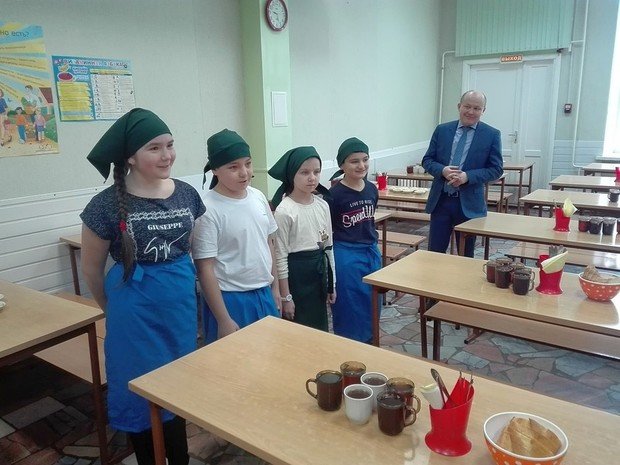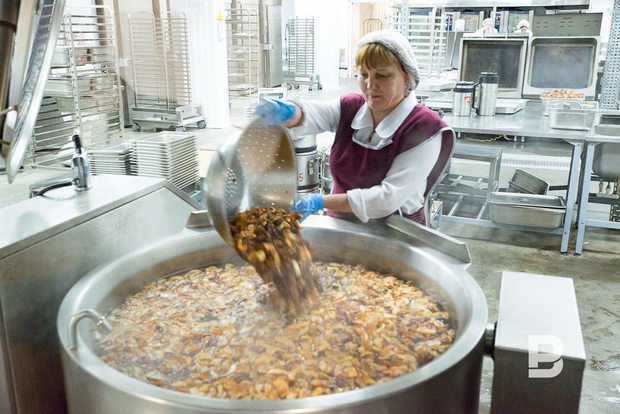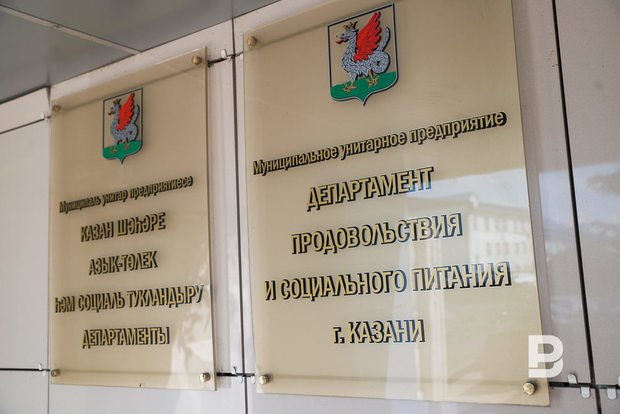Canteen monopoly: Rospotrebnadzor to relieve schools of homemade food
Functionaries say they care about children’s health, while parents are sure they care about producers’ interests only
The Federal Service for Surveillance on Consumer Rights Protection and Human Wellbeing (Rospotrebnadzor) wants to prohibit from bringing food from home, such a rule has been added to the updated Sanitary Rules and Regulations when planning children's meals, which are discussed now. The prohibition caused growing discontent – there are many complaints about school lunches, and a homemade sandwich bailed out. Rospotrebnadzor states it cares about children's health who may poison with homemade food, while parents claim the rules are written for school lunch manufacturers' benefit. If the document is accepted in the current version, they will get rid of the competition with the mum's food and become monopolists.
Vending machines and oxygen cocktails to be legalised at schools
The new sanitary rules and regulations for planning meals for children created by Rospotrebnadzor are under public discussion now. The version of the Sanitary Rules and Regulations that are applied now was approved in 2008 and obviously has become obsolete. The changes that have appeared in the new document prove it.
Now it will be possible to place vending machines at schools. But with an assortment of healthy foodstuffs– without sweets and soda. It's permitted to sell juices, nectars, pasteurised milk in a 200ml pack, still water in 0,5l bottles, dried fruits and nuts (except for peanut) in a 50g pack.
The new Sanitary Rules and Regulations legalised taxes like purchases of oxygen cocktails at schools and kindergartens. Cocktails were permitted earlier too ''for health reasons and on the condition of daily control''. Now this formulation has been substituted for ''if paediatrician prescribes''. Oxygen cocktails became a matter of dispute a long time ago, more often in kindergartens. Parents complain that they have to pay for the expensive service with a doubtful effect so that their child won't feel disadvantaged while other children are taken to drink the cocktails.

Another change is about monitoring in canteens. If previous rules permitted to use the labour of children under 14 years, now schoolchildren from 12 years will be allowed to set the table. They must be previously examined by medical staff. Nothing was said earlier about the medical examination of monitors.
Not to bring from home
But the clause 6.15 of the rules caused the greatest outcry that prohibits ''using products and dishes taken from home for planning children's meals''. In addition, as an additional option, school canteens should create a menu for children with allergy, diabetes and so on. There are many complaints about the quality of food at school – it's tasteless and expensive, many children refuse to eat porridge in the canteen and bring their own food. This is why citizens received the possible ban painfully. Rospotrebnadzor explained it's just a project that is under public discussion now, and it will be polished. Particularly it will have details – which products can be brought from home. It's unlikely durable ready-to-eat products, fruits, nuts and so on.
Rospotrebnadzor noticed it's not a new regulation. The list of products in the current rules that are prohibited to be used in school canteens include ''any foodstuffs made at home (not industrial)''. But there is a nuance, however – the rules prohibit selling homemade food in the school canteen, not accepting. Roughly speaking, countryside milk can't be sold and used, while a factory's one can.
But schools interpret these rules differently. The urban educational department in Omsk defended the school principal who prohibited children from eating homemade food in the canteen. Functionaries explained nobody checks how homemade food was made and where it was stored. This is why it might become a source of mass poisoning.

Parents in Tatarstan haven't so far complained about the bans from eating homemade food at schools. Moreover, some canteens have microwaves where children can heat what they brought from home. There hasn't been any case of mass diseases because of eating homemade food. Last year, people in Kazan poisoned with rat poison left by technical staff, because of a cook in Arsk who came to work with signs of intestinal infection and transmitted it to children through meal, in Aktanysh supposedly because of the oven to heat dishes that didn't provide necessary temperature, and the infection didn't die during treating with heat.
''A child can't eat a sandwich at the first break, he will poison with the sausage after two classes, and the educational establishment will be guilty''
Commenting on the new rules for Realnoe Vremya, Vice Chairwoman of the Committee on Social Politics of the Tatarstan State Council Tatiana Voropayeva agreed that bringing homemade food must be prohibited.
''Parents shouldn't be so aggressive. The decision of Rospotrebnadzor is explained by the necessity to care about a child's health. I've worked in the educational system for long and faced food. In emergency cases, blame is always shifted on the educational establishment, and it's not recognised homemade food might be the cause. It's not fair. In this situation, perishable foods should be prohibited. But fruits or a nutritious bar can easily be given to the child. But one should look at its shelf life. Children have different organisms – someone eats an unwashed apple, and nothing happens, while someone will have a reaction to it,'' the deputy says.
Tatiana Voropayeva participated in raids to school canteens in the committee on social politics. According to her, there are advantages that special organisations are responsible for nutrition now – control is higher there.

''This food maybe not as delicious as that of cooked in kindergartens and schools. But it's a safer option, considering that canteens have a deficit of employees, and one cook prepares for 600 people, while children help him, which is categorically prohibited too. I faced many times schools where there is a shortage of kitchen workers, and it's the trouble. But public catering must be controlled, and control at schools must go on – how food is heated, how it's fully prepared. I am going to ask for permission to start a quick control of preparation, distribution and service. But the school also should work with parents at meetings, ask Rospotrebnadzor to give an explanation, what homemade food is fraught with. A child can't eat a sandwich at the first break, he will poison with the sausage after two classes, and the educational establishment will be guilty,'' the deputy says.
Canteen monopoly: who favours from getting rid of rivals
Rospotrebnadzor noted that the new Sanitary Rules and Regulations will allow to reduce risks for children's health because of food factor and considerably increase the role of nutrition's function in health saving. But parents are sure the rules are written to benefit school lunch manufacturers. They will get rid of the competition with the mum's food if the document is adopted in the current version and become monopolists.
As Realnoe Vremya was said in the Ministry of Education and Science, catering organisations feed schoolchildren in 17 districts of Tatarstan. It's School Catering of Aznakayevo Municipal District MUE, Etalon+ PLC, Graf Plus PLC, Social Catering Factory of Almetyevsk Municipal District PLC, School Catering Factory of Bavly Municipal District, School Catering PLC (Naberezhnye Chelny), School Catering PLC in Zelenodolsk, Fabrika Semi-Finished Products of Laishevo Municipal District MUE, Etalon PLSC of Leninogorsk Municipal District, IE Yefremova I., Fortuna PLC in Nurlat, Ash-su Consumer Society of Saby Municipal District, IE Khakimova F. in Tyulyachi Municipal District, Vita-M PLC in Chistopol Municipal District, Viktoria production and commerce enterprise in Chistopol Municipal District and the Food and Social Catering Department of Kazan MUE.
The biggest supplier is the Food and Social Catering Department of Kazan MUE that covers 35% of the republic's territory and supplies food to Nizhnekamsk, Arsk, Atna, Baltasi, Buinsk, Verkhny Uslov, Zelenodolsk, Kaybitsy, Laishevo, Nizhnekamsk, Pestretsy, Tyulachi Districts.

In the capital of the republic, the Food and Social Catering Department of Kazan MUE provides all schools and kindergartens. 92 schools have a lunch box system when prepared food is delivered from the department. 80 schools cook with semi-finished products supplied by the departments. Since this year, schools have had their own bakery prohibited, pastries made only in the department are on sale. School lunch is 65 rubles.
According to the Tatarstan Ministry of Education and Science, 96% of pupils have hot meals in the 2018/2019 academic year. The coverage of a two-time hot meal is 42% of pupils.